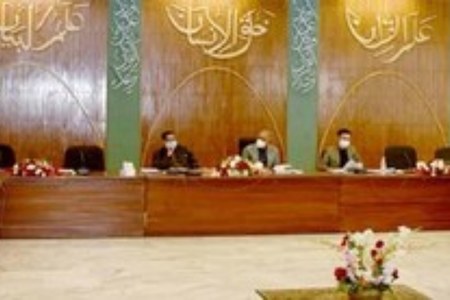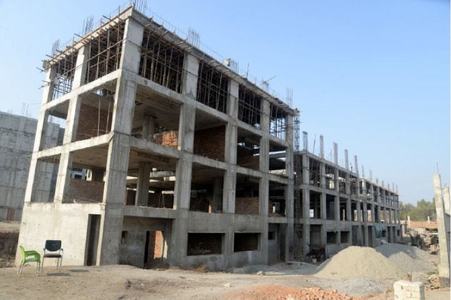Prime Minister Imran Khan on Thursday inaugurated the balloting ceremony of a housing scheme for labourers in the capital, terming it a "first in the history of Pakistan".
According to the Prime Minister's Office (PMO), 1,008 flats and 500 houses will be allotted in the first phase.
Talking to reporters after the inauguration ceremony, the prime minister said people would soon begin to see the progress on the government's housing initiatives.
"You will all see the impact of it from this year because of the level of construction which is happening. You will yourself see the level of economic activity that will be generated in Pakistan and people will get livelihoods and there will be wealth creation."
Prime Minister Imran said no government in the world could build houses for everyone but what it could do instead was to facilitate and provide opportunities to people so they could "easily" build or purchase their own houses.
Turning to his government's efforts in this regard, the premier said his government had "for the first time" in the country's history approached banks and offered them incentives to set aside Rs380 billion for housing finance.
"All private banks put aside this amount which the SBP (State Bank of Pakistan) is monitoring. The government is giving a subsidy of Rs300,000 for up to 100,000 houses. For example, if a house is worth Rs2.1 million and you get a subsidy of Rs300,000 on that, it [costs] Rs18m. This means the instalments to be paid monthly are further reduced.
"This makes it easier for the common man. What he pays in rent can [now] be paid in instalments and he gets to own the house as well," he elaborated.
The foreclosure law that took two years to pass had made it easier for banks to offer housing loans, the premier recalled. "You will hopefully see the housing industry rise."
When asked about the delay in the completion of the project, he replied that the land had been purchased 25 years ago by the Workers' Welfare Fund (WWF) which he said was a "mass of corruption".
"The government had decided that this should be done, so it revived a 25-year-old scheme. A whole society was built in front of you in 2.5 years."
Talking about cooperation from the provinces, PM Imran said he could not comment on Sindh because "we do not get any response from them". However, he added that work was being carried out "very rapidly" in Punjab, Khyber Pakhtunkhwa, and Balochistan.
Listing out the government's projects, the premier mentioned Bundal Island, Ravi Riverfront Urban Development Project, and Lahore's Central Business District which he termed as a "completely modern project".
He said that even if the Bundal Island project could not be completed, the Ravi Riverfront Project, Naya Pakistan Housing Project, and the Central Business District would lead to the construction of five million houses.
Houses were also being built for hawkers, the premier said. "We are working together with the NGO (non-governmental organisation) Akhuwat and have created 7,800 homes for the [lowest-income] segment."
Talking about steps to facilitate overseas Pakistanis who wished to invest in the construction industry, Prime Minister Imran said the government had declared a "jihad (holy war)" against land mafia.
"Land mafias and qabza groups (occupation forces) in all the cities are big and powerful people with connections to politicians. They were so powerful that neither did the police say anything to them nor did anyone have the strength to go to courts and get the encroachments removed.
"That jihad has been started and I think the Punjab government has recovered land worth more than Rs200bn from qabza groups."
He added that the government had also established special courts for overseas Pakistanis which would fast-track their cases.
When asked whether the PTI government would be able to complete the targets it had set by 2023, the prime minister said that people would "start to see things [happening] in front of you now that half of our tenure has passed".
This would include two big dams, he said. However, the construction would not be completed till 2023, he said, noting that dams were not built in the past because earlier governments thought of "carrying out work shortly before the elections".
This resulted in a "great injustice to the country" because water reservoirs were not built, he added.
When asked about the government's plan for food security and the environment, the prime minister said he would launch a new food security plan on April 8 or 10.
He said the PTI government was the first one that was making master plans of cities and once they were made, cities would start expanding vertically. Some of these master plans would be completed by the middle of this year while others would be completed by the end of 2021.
Elaborating on why the master plans for cities were important, the premier said that unless cities were expanded vertically instead of horizontally, there would be concerns about food security and it would be difficult and expensive to provide utilities to people living there.














































